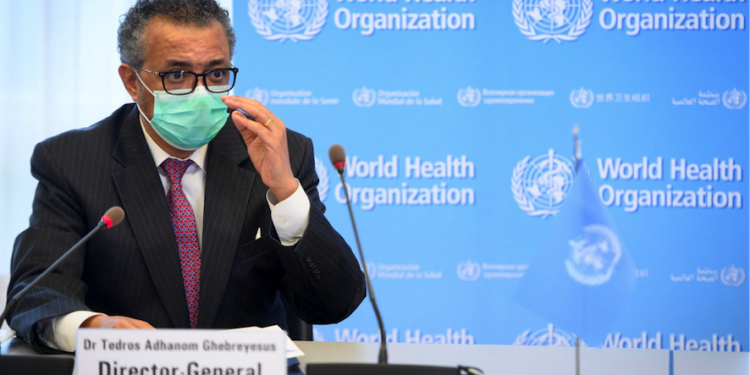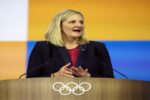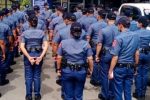WHO calls for timeout on vaccine booster shots

The head of the World Health Organization (WHO) called for a moratorium on COVID-19 vaccine booster shots until at least the end of September to help ensure that vaccine doses are available in countries where few people have received their first shots.
The call for a moratorium by WHO Director-General Tedros Adhanom Ghebreyesus comes as countries deliberate the need for boosters to combat the fast-spreading Delta variant of the coronavirus.
“I understand the concern of all governments to protect their people from the Delta variant. But we cannot accept countries that have already used most of the global supply of vaccines using even more of it,” Tedros said.
He said richer countries have administered about 100 doses of coronavirus vaccines for every 100 people on average in May and that number has since doubled, while low-income countries with short supplies have provided only about 1.5 doses per 100 people due to lack of supply.
“We need an urgent reversal from the majority of vaccines going to high-income countries to the majority going to low-income countries,” Tedros said.
WHO officials say the science is unproven about whether giving booster shots to people who have already received two vaccine doses is effective in preventing the spread of the coronavirus.
Top US health officials also have said there isn’t yet enough data to support booster shots, even for the elderly and immunocompromised, though Israel is now recommending them for those groups.
The US in July signed a deal with Pfizer Inc and German partner BioNTech to buy 200 million additional doses of the companies’ COVID-19 vaccine to help with pediatric vaccination as well as possible booster shots.
The Food and Drug Administration (FDA) reportedly is aiming to grant full approval to Pfizer’s COVID-19 vaccine by early next month.
The FDA announced earlier this summer that it planned to approve the Pfizer drug by January of next year, but the agency’s internal target date is Labor Day, The New York Times reported Wednesday, citing unnamed people familiar with the agency’s decision-making process.
Pfizer and Moderna have filed initial paperwork for full approval. Only Pfizer has submitted all the necessary information to the FDA, according to the company. Johnson & Johnson says it plans to file for full approval later this year.
Full approval might inspire more confidence in COVID-19 vaccines and encourage some vaccine-hesitant individuals to get inoculated.
But a Kaiser Family Foundation poll released Wednesday showed more unvaccinated adults in the US view the coronavirus vaccine as a greater risk to their health than the disease caused by the virus itself.
The poll showed just more than half of unvaccinated adults — 53 percent — said they believed getting vaccinated posed a bigger risk to their health than getting infected with the coronavirus.
“In contrast, an overwhelming majority — 88 percent — of vaccinated adults said that getting infected with COVID-19 is a bigger risk to their health than the vaccine,” the survey from July 15 to July 27 found.
The majority of unvaccinated adults — 57 percent — also said they thought the news media had “generally exaggerated” the seriousness of the pandemic, compared with 17 percent of vaccinated adults.
The vaccine is plentiful in the US, but vaccine hesitancy remains a serious concern as COVID infections are driven by the highly contagious Delta variant and the vast majority of infections and hospitalizations are among the unvaccinated.
More than 90 percent of new coronavirus infections across the US are from the Delta variant, according to the Centers for Disease Control and Prevention (CDC).
Full authorization also is expected to see more companies mandate that their workers be vaccinated. Many employers and schools in the US have cited the emergency use authorization as a legal hurdle to issuing vaccine requirements, meaning the full authorization will likely spark more mandates.
Some US airlines are requiring vaccines for new hires but not existing staff. Manufacturing giants such as General Electric Co , Caterpillar Inc and the Big Three US automakers have said they aren’t mandating vaccines. On Tuesday, GM and its rivals decided Tuesday to reinstate mask-wearing across their workforces after discussions with a joint task force of the United Auto Workers union.
“We’d like to see it approved as fast as humanly possible, so we can really go back to just the more normal experience,” said Jim Malatras, chancellor of the State University of New York system, which serves 400,000 students. He told The Wall Street Journal that under guidance from the state, he can’t impose a vaccine mandate for students until the shots are granted full approval. For now, the school is requiring vaccines or weekly testing.
On Wednesday, the New York International Auto Show was canceled because of the rise in COVID-19 cases caused by the Delta variant. The show was scheduled to run from Aug 20 to Aug 29 at the Jacob K. Javits Convention Center.
Mark Schienberg, the show’s president, said auto show organizers are planning for a return to its regular spring schedule in April 2022.
The show’s organizers, in canceling this year’s show, also cited increased measures by local officials to stop the variant’s spread.
The seven-day average number of confirmed and probable daily coronavirus cases now exceeds 1,400 in New York City, according to city data on Wednesday. On Wednesday, the seven-day average number of hospitalizations in the city was 47, after hovering between 20 and 35 since the start of June, city data show. It was over 300 in January and February of this year.





